|
The year 2021 started off with so much promise. COVID vaccines had just become available and Joe Biden was about to become President. But the optimism of the new year was shattered for me on January 6th with the Capitol riot. This led to another impeachment of Donald Trump, ongoing Congressional investigations, and a widening of the partisan divide. Even with the occasional rays of sunlight shining through the fog of COVID, the dark clouds were never far away. But the year wasn’t all bad, and if you were smart enough to tune out the news and social media banter, you may be in a pretty good place right now. Job prospects have rarely looked better, the economy is doing well, despite the spike in inflation, and many of us are spending more time outdoors and with family and friends. It is actually raining in much of California as I write this, and the record Sierra snowpack for December brings much needed drought relief. The good news often gets overshadowed by the bad. My New Year’s resolution is to focus more on the good and turn down the volume on all the negativity and bad news. The change-over from one year to the next is a time of renewal, and gives us hope that things will be better in the future. It is also a time for reflection of the year just past and for the prospects that a new year may bring. This blog is about some of the biggest stories of 2021 and my reflections upon them. COVID and Vaccines: The COVID pandemic continued to dominate headlines and our lives throughout 2021. All Americans ages 16 and above became eligible to receive a COVID vaccine starting on April 19, 2021.That was the month that I got vaccinated and was happy to drive 120 miles and stand in line for two hours to receive my first shot. Children ages 12-15 became eligible for the Pfizer vaccine in May. This brought a lot of optimism and it seemed as if the country was emerging from darkness into the light. But the virus had other ideas with the emergence of the Delta variant, which became the predominate variant in the U.S. by the end of June. The Delta variant caused more infections and spread faster than previous variants. The vaccines proved less effective at preventing infection from the new variant, but they remained highly effective at preventing hospitalizations and deaths. In late October the FDA authorized the use of the Pfizer vaccine in children ages 5-11. All of the approved COVID vaccines lose effectiveness over time. Booster doses are required as immunity diminishes. In October the FDA authorized the use of booster doses for all adults, six months following the 2nd shot of the Pfizer or Moderna vaccine, and two months following the J+J vaccine. At the start of 2022, Pfizer booster shots were authorized for children ages 12-15, and the waiting period changed from six months to five for all recipients. It is now clear that a full vaccine regimen includes the initial shots plus the booster. The CDC should begin using the term “full vaccination” to mean the initial shots plus the booster, and eliminate the word “booster” altogether. It is confusing, and gives the impression that the booster shot is optional and not part of the full vaccine regimen. The Omicron variant was first detected in the U.S. on December 1st, and by the end of the month was the dominant variant. It arrived just in time to disrupt holiday plans here and around the world. It appears to spread at a rate 2-3 times faster than Delta and has resulted in a surge in hospitalizations. The final week of December saw an average daily infection rate of nearly 400,000. The actual total is probably much higher, since many people with breakthrough cases don’t seek medical attention. There is a silver lining here. According to studies from South Africa and Britain, the Omicron variant appears milder and is far less likely to result in hospitalization than any other variant. Research suggests that Omicron is less damaging to the lungs than Delta, and is mainly limited to the nose, throat, and windpipe, https://www.theguardian.com/world/2022/jan/02/new-studies-reinforce-belief-that-omicron-is-less-likely-to-damage-lungs. We should never forget that COVID vaccines have been a huge success. According to the CDC, unvaccinated people are ten times as likely to become hospitalized and ten times as likely to die from COVID as vaccinated people. Even though the cases of breakthrough infections have increased due to the highly infectious Omicron variant, the vast majority of people getting seriously ill and dying from COVID are the unvaccinated. To date, approximately 63% of the U.S. population is vaccinated, but only about 30% of the vaccinated adults have received a booster shot. There are millions of Americans who have not been vaccinated, and billions are yet to be vaccinated around the world. This leaves a lot of hosts for new COVID variants to emerge. For this pandemic to end, more people need to get vaccinated, and wearing appropriate face masks in public should become routine. Capitol Riot: The work of the House Select Committee investigating the January 6th attack on the U.S. Capitol is far from over. The committee is likely to release an interim report by the summer and a final report sometime this fall. I hope that the thoroughness of the investigation and the timing of the final report’s release is not influenced by the mid-term elections. Meanwhile, Federal prosecutors are busy conducting investigations of individuals who may have been criminally involved in the January 6th riot. To date, more than 725 people have been charged with various crimes pertaining to their activities in the Capitol on that day. Earlier this month a new law was passed which grants the Capitol Police Chief the power to unilaterally request emergency backup from the National Guard and federal law enforcement agencies. This legislation will allow the Capitol Police to react more swiftly to emergencies. It shouldn’t have taken such a massive breach in our Capitol’s security for a bill of this type to be enacted. I guess it takes a crisis for anything to get through Congress on a bipartisan basis. President Biden’s Legislative Agenda: President Biden’s triumphs were overshadowed by his failure to pass his massive “Build Back Better” social agenda by the end of the year. His job approval ratings ran as high as 55% near the start of his presidency, but have sunk to the low 40s by the end of the year. In March, the President signed into law the $1.9 Trillion “American Rescue Plan”. This was a big victory for the President. It provided much needed funding to fight the COVID pandemic, and it provided economic stimulus to states, counties, cities and families. The other major legislative victory for the President was the passage of the $1.2 Trillion “Infrastructure Investment and Jobs Act” in November. This important piece of legislation was passed on a bipartisan basis, which is no small achievement. But the Democrats were not content to end the spending spree there, and the progressive wing of the party pushed the President to move forward with his multi-trillion dollar “Build Back Better” social spending plan. This backfired on the President when a few moderate Democrats in the Senate pushed back due to the price tag. The plan is not dead, but it will be scaled back and will consume a lot of energy as the politicos turn their attention to the mid-term elections. I think that the President overplayed his hand with “Build Back Better”. As several others have remarked, nobody elected Joe Biden to be FDR, they elected him to be moderate and stop the chaos. The Democrats have very slim margins in the House and the Senate. There is no mandate to get big progressive bills through Congress. Joe Biden should have known better. Economy: The economy came roaring back in 2021 due to pent up demand and trillions of dollars from stimulus programs. But as everyone has experienced, inflation has reared its ugly head. Consumer prices rose by 5.7% in November from a year earlier. Anyone who has purchased gasoline, groceries, and household goods in recent months has felt the pinch. Housing prices, automobiles and electronics have also seen significant price increases over the past year. Initially the economists thought the inflation would be transitory due to COVID related supply chain disruptions. But with low unemployment rates fueling wage increases, inflation is not going to be so easy to tame. The Federal Reserve is poised to step in and end its bond purchasing program, and begin to increase interest rates in the new year. End of the Afghanistan War: The U.S. completed its evacuation of all U.S. military troops from Afghanistan on August 31, 2021, marking the end of the twenty-year war. Any good that resulted from the war was overshadowed by the collapse of the U.S. backed government and the rapid disintegration of the Afghan military, which allowed the Taliban to regain control of Afghanistan. Today Afghanistan is facing an economic and humanitarian crisis. Billions of dollars of the country’s assets are frozen in the U.S, and most international aid has stopped. Despite pledges to the contrary, the Taliban has reverted to its repressive policies of the past. Severe restrictions have been placed on women, and many democratic institutions have been dismantled. The U.S. military’s chaotic exit from Afghanistan and the rapid takeover by the Taliban will be used against the Democrats in the midterm elections and beyond. I still believe that it was the right decision for the U.S. to exit Afghanistan. But President Biden’s much heralded foreign policy expertise and his knowledge of the situation, came up woefully short. Mike Pence is the Unsung Hero of the Year: Yes, Mike Pence, the former vice president! Mike Pence was Donald Trump’s last hope against the certification of the 2020 Presidential election. All of the dozens of legal challenges to the outcome of the election filed on behalf of Trump, failed in court or were tossed out. Trump had been convinced, falsely, by his lawyers and consultants that the vice president had the constitutional authority to prevent the certification of the electoral votes due to potential voter fraud. Pence could decertify those votes he disagreed with and send them back to the states. Friendly state legislatures would then send back to Congress a new slate of electors in favor of Donald Trump, giving him the electoral victory. Mike Pence was under tremendous pressure by the President and his lawyers and consultants, to enact the plan to decertify the election. For his part, Mike Pence consulted Congressional colleagues, constitutional experts, and a former vice president on the matter. Pence was rightly convinced that he had no constitutional authority to do anything other than to count the electoral votes already certified by the individual states. Critics of Mike Pence said that he was just doing his job. Sure, but if Pence had gone along with the President and failed to do his job, this country would have been thrown into a constitutional crisis which would have caused irreparable harm to our democracy. Mike Pence also paid a big personal price for defying President Trump. He damaged his standing with the Republican base, and his prospects for the White House have vanished. Donald Trump could not have hoped for a more loyal vice president than Mike Pence, and what does he get as a reward? He is thrown under the bus by Donald Trump who turns him into the villain of the Republican Party. This episode shows the true character of Donald Trump. He demands loyalty from others, but he gives none in return. Contrast this to the character of Mike Pence who refused to be evacuated from the Capitol on January 6th as Trump loyalists stormed the building shouting “Hang Mike Pence”. Mike Pence did not leave the Capitol until Joe Biden was certified as the winner of the 2020 Presidential election. That was an historic moment for our country, and if not for Mike Pence this country would never be the same. The Most Important Story You Might Have Missed: The Associated Press conducted an exhaustive review of every potential case of voter fraud in the six battleground states disputed by former President Donald Trump, https://apnews.com/article/joe-biden-arizona-donald-trump-voter-registration-tucson-c64bba90b8c074bf8bdfd2c751b6b0f2. The review took place over several months, involving over 300 local election offices in the key battleground states of Arizona, Georgia, Michigan, Nevada, Pennsylvania and Wisconsin. Of the 25.5 million ballots cast for president in these states, less than 475 proved to be fraudulent. Even if all 475 of these votes were removed from Joe Biden’s tally, it would have had zero impact on the outcome of the election. Every one of those fraudulent votes was cast by an individual acting alone. There was no collusion to rig the election and no wide-spread voter fraud. Donald Trump’s “Big Lie” is just that; a big lie. There were a lot of big stories that I didn’t comment on, such as voting rights, abortion, and Joe Manchin’s clash with the President. But these stories will be with us in the new year, and there will be plenty of time to comment on them as they continue to develop. Most of the big news out of 2021 didn’t have much in the “feel good” department. Many of us have COVID fatigue, so it’s easy to overlook the good that occurred. The pandemic will end, and most of us will get through it unscathed, although not unchanged. If nothing else, we will learn to appreciate what is truly important: family, friends and good health.
If you enjoy reading this type of commentary please subscribe to my blog and tell a friend. You will receive an email notification when new blogs are posted. The email will come from the site’s email: armchairamerican1776 @gmail.com. Thanks, Armchair American
0 Comments
Smash-and-grab and flash-mob robberies have been making the headlines in recent weeks. High-end department stores and specialty shops in Los Angeles and San Francisco have received most of the attention. But this type of retail theft has occurred in Illinois, Minnesota, Maryland and large metropolitan areas across the country. It’s easy to blame these mostly Democrat states for liberal policies run amok. But with any contravening issue, there are many contributing factors, and the solutions are far from easy. If laws or policies are flawed, they can be rewritten. Changes in societal norms, or a break in the moral fabric of society usually occur over an extended period of time, and are not subject to quick fixes. There are several theories floating around about the cause(s) of the uptick in retail theft. Retail theft by organized gangs is not new, and theft always picks up around the holidays when stores are packed with merchandise. What is new is the widespread use of social media, the widespread acceptance of online shopping, and the ongoing COVID pandemic. Here are some of the more plausible theories for the uptick in retail theft. Soft on Crime Policies: Several states across the country have raised felony thresholds for shoplifting, or have eliminated cash bail for non-violent crimes in order to reduce overcrowding in jails, https://www.buysafeamerica.org/homeland-security-express-concern-on-retail-crime. The poster child for these recent reforms is California’s 2014 law, Proposition 47. Among other things, this law reduced the crimes of petty theft and receiving stolen property to misdemeanors when the value was $950 or less, https://www.courts.ca.gov/prop47.htm. Proponents of Proposition 47, including Governor Gavin Newsom, claim that it is being used as a scapegoat, and law enforcement has other tools to arrest and hold accountable those who perpetrate petty crimes. Critics of Proposition 47 say that petty theft is up because these crimes seldom get reported, and even when they are, little is done. Critics maintain that shoplifting has essentially been decriminalized since it goes unreported, and police don’t respond to petty crimes. It is hard to argue against this reasoning, and organized thieves are well aware of the law and see little risk in perpetrating petty crimes. I don’t blame the police for the rise in petty crimes. With calls to “defund the police”, there are vacancies in police departments across the country and moral is low. Petty crime just isn’t a priority for most police departments, and it won’t be until there is a public outcry. Pandemic: Does the COVID pandemic have anything to do with the uptick in retail theft? I believe it does play a part. Since the beginning of the pandemic more people are shopping online, and the bulk of stolen products end up being sold through online marketplaces. Many of these online markets don’t verify sellers’ identities or give information about them to consumers. This anonymity has proven a bonanza for crooks. Criminals conducting the smash-and-grab thefts are emboldened by the anonymity of wearing a facemask, which no longer attracts attention. Smash-and-grab robberies are often organized on social media, and flash mobs can easily overwhelm the meager security measures at most brick-and-mortar retailers. Moral Decay: The pandemic does not cause people to engage in criminal behavior. Lax laws or lack of policing doesn’t compel people to act irresponsibly. People are responsible for their own behavior. No law can compel a person to act in a moral way. Following the norms of society is what creates safe and orderly communities, and promotes social cohesion. Without this, societies crumble into chaos and lawlessness. The lack of moral leadership in this country, at all levels of government, is partly responsible for the decline in social responsibility and civility. The politics in our country have become so divisive that it fosters a lack of civil discourse and a breakdown in social cohesion. In the past few years, we have witnessed public officials spreading misinformation and telling blatant lies to further personal agendas. Uncredentialed people claim to know more than health experts, endangering the lives of many. Politicians and media influencers have cast doubts on the integrity of our elections, and have undermined the credibility of pubic institutions. We are living in an environment where the truth is up for debate, law enforcement picks and chooses which laws to enforce, public health orders and congressional subpoenas are ignored, and mob violence is condoned for political expediency. This has led to a decline in the norms of decency, honesty and fair play. Is it any wonder that destructive flash mobs and smash-and-grab robberies have increased in this environment? Throw in the disruption to lives and livelihoods caused by the pandemic and you have a toxic mix. Difficult times often bring out the best in humanity, and we have witnessed many examples of this. But today the spot light is shining brightly on the worst of human nature, and we need to find a way to dim that light. Policy Solutions: Fixing some of the factors leading to the rise in retail thefts and other petty crimes will not be easy. But the following policy changes could help to prevent these crimes from occurring in the first place. Tighten-up Prosecutions and Policing: Proposition 47 in California and similar laws in other states, need to be revisited. Proposition 47 was a ballot initiative supported by a majority of California voters. But it is a complex law, beyond the comprehension of most voters, and has created a “get out of jail free” card for many petty criminals. The law should be rewritten by the state legislature after a thorough review. Smarter policing policies, supported by adequate funding, have proved to be successful in curbing petty crime in several cities. Boots on the ground in crime prone areas is important, along with a multidisciplinary approach to crime. I am no criminologist, but there is a lot of research on this subject. The war on petty crime in New York City during the 1980s and 1990s was successful, and recent research has proven its value, https://www.city-journal.org/html/how-new-york-became-safe-full-story-13197.html. Cut Off the Resale Pipeline for Stolen Goods: Since the bulk of stolen merchandise ends up for sale online, it makes sense to try and make this practice more difficult. Legislation is working its way through Congress which would do just that. It is called the Integrity, Notification, and Fairness in Online Retail Marketplaces for Consumers Act, or the INFORM Consumers Act, https://www.congress.gov/bill/117th-congress/senate-bill/936/text.This legislation requires online retail marketplaces to authenticate the identities of high-volume, third-party sellers. This should help to stop criminals from selling stolen goods online and prevent vendors from selling counterfeit products. The pandemic will be over one day and a semblance of normalcy will return to our country. But if we don’t get a handle on retail thefts and other petty crimes our cities will be much less livable, our shopping choices will be limited, and our sense of community will be diminished. Retail stores are closing or reducing hours in many cities, leaving fewer choices for consumers, and reducing or eliminating jobs. If people fear to live, work and shop in certain areas, those areas will begin to decay. I live near San Francisco and have seen first-hand how unchecked criminal activity can destroy whole sections of a city. Smart laws and public policies can do much to solve the problem of petty crime. It is more difficult to rebuild respect for the law and public institutions, and to build the moral fabric required of a functioning society.
If you enjoy reading this type of commentary please subscribe to my blog and tell a friend. You will receive an email notification when new blogs are posted. The email will come from the site’s email: armchairamerican1776 @gmail.com. Thanks, Armchair American (www.armchairamerican.com) |
AuthorThe Armchair American. Archives
November 2024
Categories
All
|
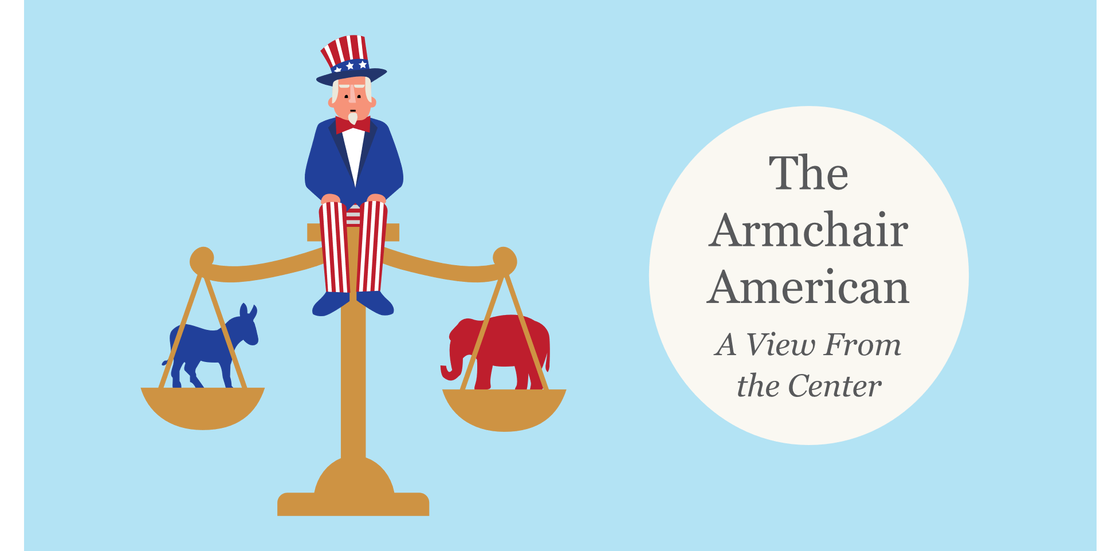


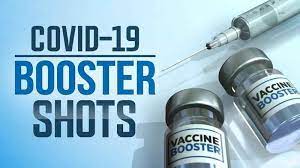

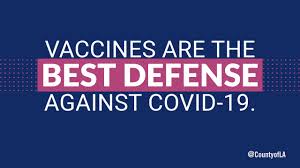
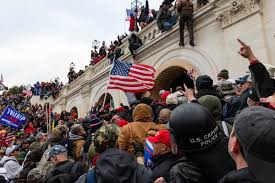
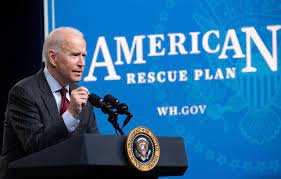
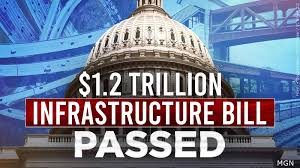
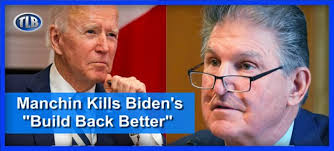
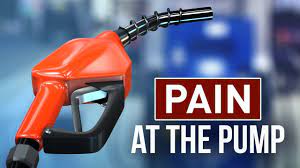




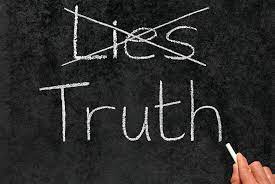


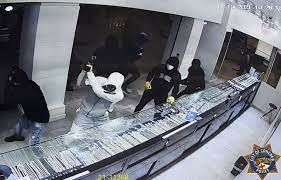
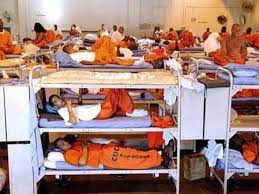
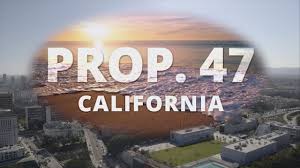
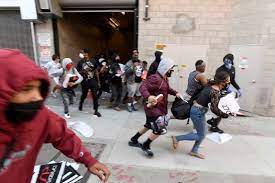
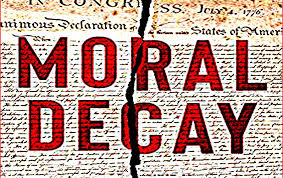
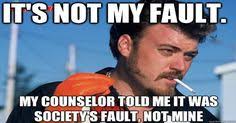
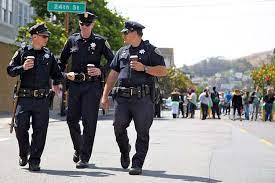
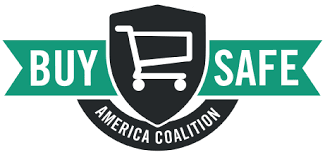
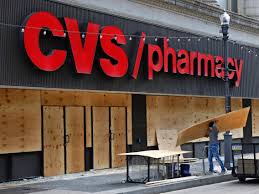


 RSS Feed
RSS Feed